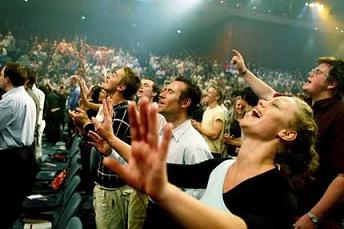
The post-election reality is here: Donald Trump won the election for President over Hillary Clinton. I have friends who voted for both candidates. Looking at my Facebook and Twitter feeds, it is clear that many are troubled by the divided nature of this political season and the results of the election. What shall we do?
This is a time for prayer. What shall we pray for?
Four years ago, I posted this to Facebook after the last presidential election:
No matter if your candidate won or lost last night, remember that what makes this nation great should not be about the loudest political rancor. What makes our nation great is our history of shared resolve to advance the common good.
May you pray this post-election prayer: Continue Reading…



 After the 2012 elections, Franklin Graham stated on CNN that our nation is on a “path of destruction” due to the 2012 election results. In addition Graham
After the 2012 elections, Franklin Graham stated on CNN that our nation is on a “path of destruction” due to the 2012 election results. In addition Graham 

You must be logged in to post a comment.